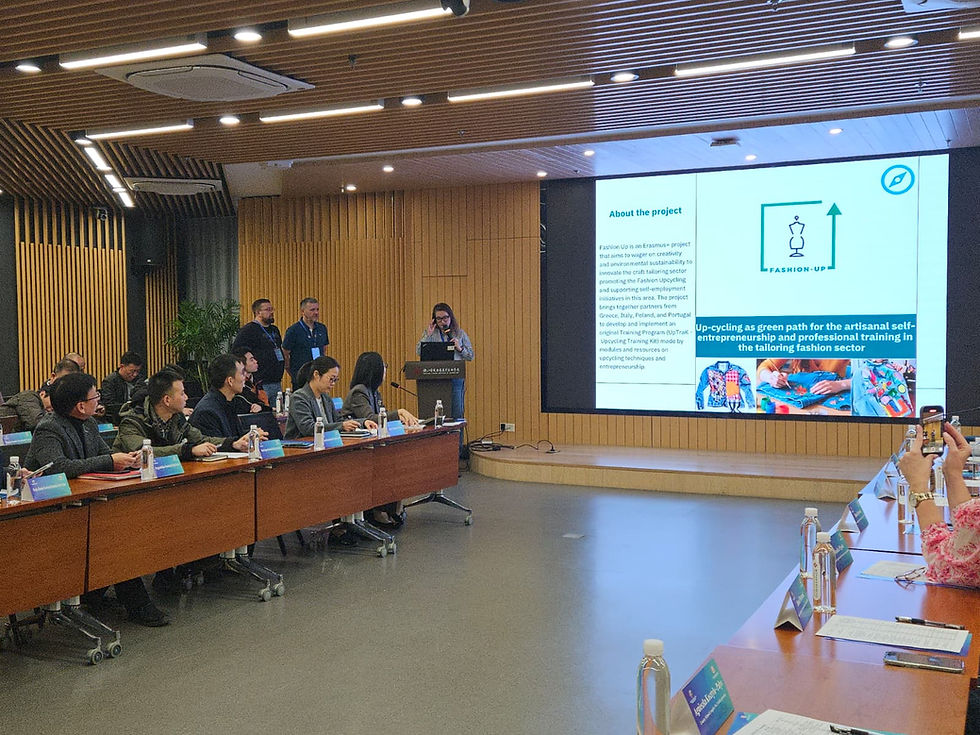Erasmus+ FASHION-UP project - Florence launches the future of sustainable fashion: the Upcycling course at Spazio Nota is underway
- Oct 9, 2025
- 1 min read

The Erasmus+ course dedicated to upcycling in fashion is underway simultaneously in four European countries
On September 29, 2025, the new training course on upcycling in fashion officially kicked off at the Spazio Nota laboratory in Florence, an innovative program that combines artisan creativity, sustainability, and the circular economy. The course consists of 220 hours of technical and practical training on upcycling techniques, which are replicated in all partner countries for a study and creativity experience that will last until December 2025. The course program and all its original teaching materials have been developed as part of the European Erasmus+ FASHION-UP project (KA220 Cooperation Partnership in VET), led by OMA – Osservatorio dei Mestieri d'Arte (Observatory of Artistic Crafts) and with Centro Machiavelli as the other Italian partner.
The training course, designed for future professionals in green artisan tailoring, is the result of contributions from partners in Greece, Portugal, and Poland, enriched by OMA's robust know-how. It is a true international laboratory of ideas that focuses on fashion as a driver of regeneration, where creativity meets respect for the environment.
Thanks to this course, young participants will have the opportunity to experiment with techniques for reusing, redesigning, and enhancing garments, transforming textile waste into new, unique, and sustainable products. An experience that not only relaunches craftsmanship as a strategic resource for the future but also contributes concretely to spreading the values of circular fashion.
Fashion, sustainability, and innovation come together in Florence: a new step towards a greener and more creative future.
.jpg)



Comments